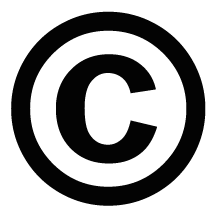
Study reveals copyright complexities, social norms in online media creation
July 11, 2014
Research into fan fiction and other types of remix communities reveals many legal misconceptions persistent among different groups when applying copyrighted work to their own creations. The research also highlights online social norms – independent of actual law – that guide the use of copyrighted works in fan communities. For the study, Georgia Tech researchers interviewed content creators who participate in remix and fan creation activities – think "Gangnam-style" parody videos or Twilight fan fiction – and found that legal ambiguity, rather than technical limitations can be a higher barrier to creating media online. The study focused on participants' understanding of the U.S. copyright law's "fair use" provision, which allows for the use of copyrighted material without permission from the owners in certain instances. "We wanted to take a group of people who make subtle judgments about what they think they can or can't do in a legally gray area and see how that affects their daily decisions in what they are creating online," says Casey Fiesler, Ph.D. candidate in human-centered computing at Georgia Tech and the primary investigator in the research. The study revealed several common legal myths about fair use that were strikingly similar among participants who represented different media types (fiction, art, video, graphics and music). These included:
Fiesler, who also holds a law degree from Vanderbilt University, says the problem with fair use is that it's decided on a case-by-case basis. She said: "The only way you ever know for absolute sure that something is fair use is if you are sued, and a judge says 'Yes, it's fair use' or 'No, it's not.'" Researchers also discovered patterns of ethical judgments by participants that are related to fair use. These included:
The research indicates that many of the participants' ethical judgments likely stem from the social norms of larger fan communities that predate the Internet. The fandom community has a "gift" economy, rather than a commercial one, says Fiesler, and that helps dictate norms about how both the underlying works and the new works are treated. Where the law is vague in what constitutes commercialization, the Georgia Tech researchers found that fan communities often extend the definition to any type of "profiting." One participant, for example, said that banner ads on a website with remixed work is profiting from the art and should be disallowed. Fan debates on what qualifies as profiting also help to keep the artists in line with legal doctrine. "What the community typically believes and does can actually affect what is judged legal," says Amy Bruckman, professor in the School of Interactive Computing at Georgia Tech and researcher on the study. "So it's in their interests to have cohesion to craft codes of best practice." Researchers also found that content creators receive uneven guidance on fair use from market leaders who publish their content. YouTube's Copyright School (a four-minute video for copyright offenders) features a cute woodland creature that attempts to push the fair use legal information off the screen when it appears. Fiesler says YouTube's approach might imply that fair use is too hard and that anyone considering it should get a lawyer or beware, a message that could have a chilling effect on how technology is used.
Source of News:
|
|||
